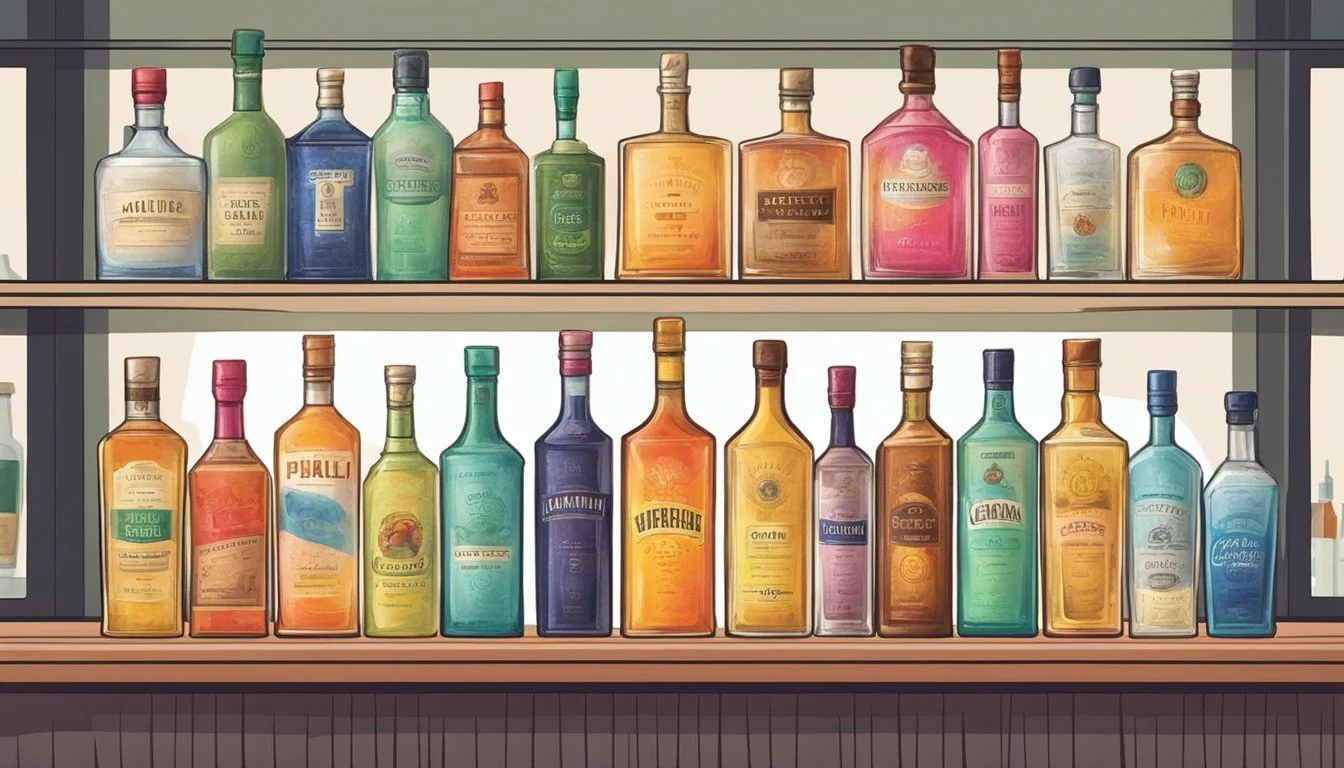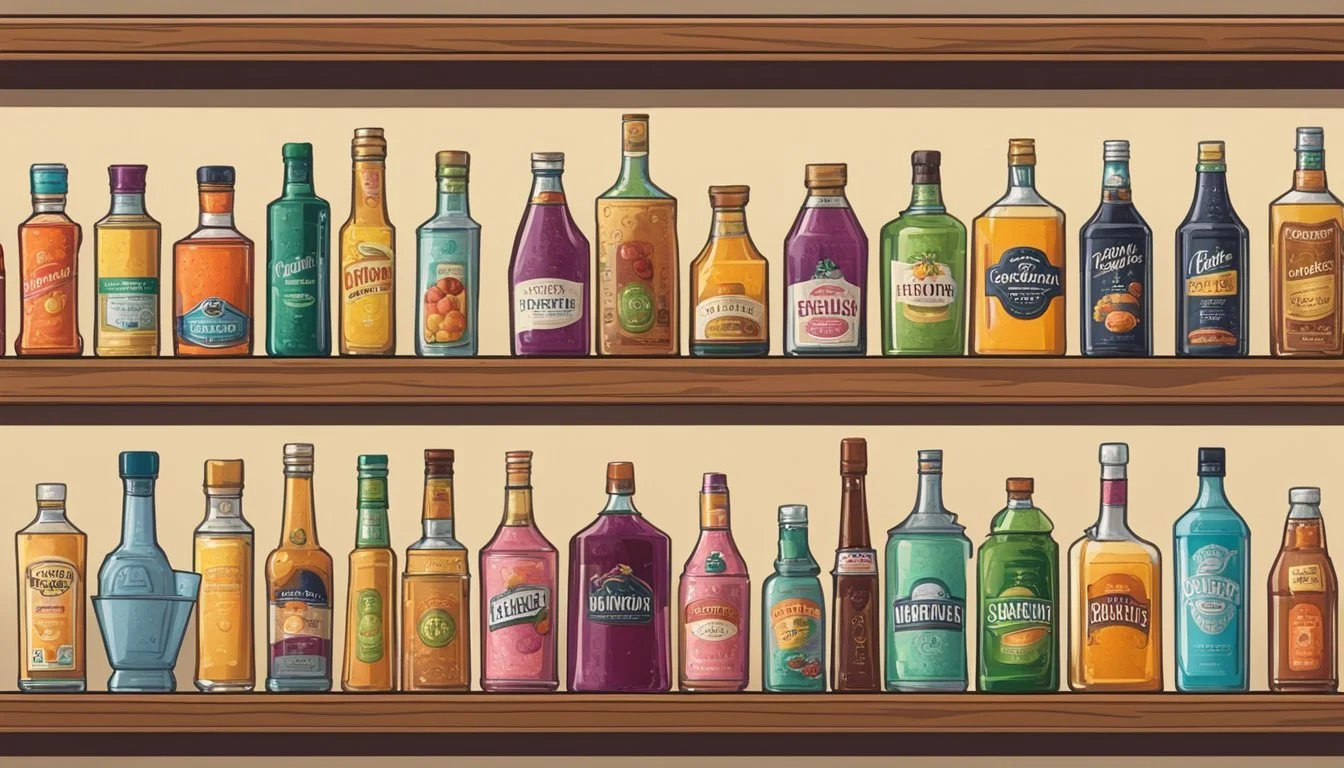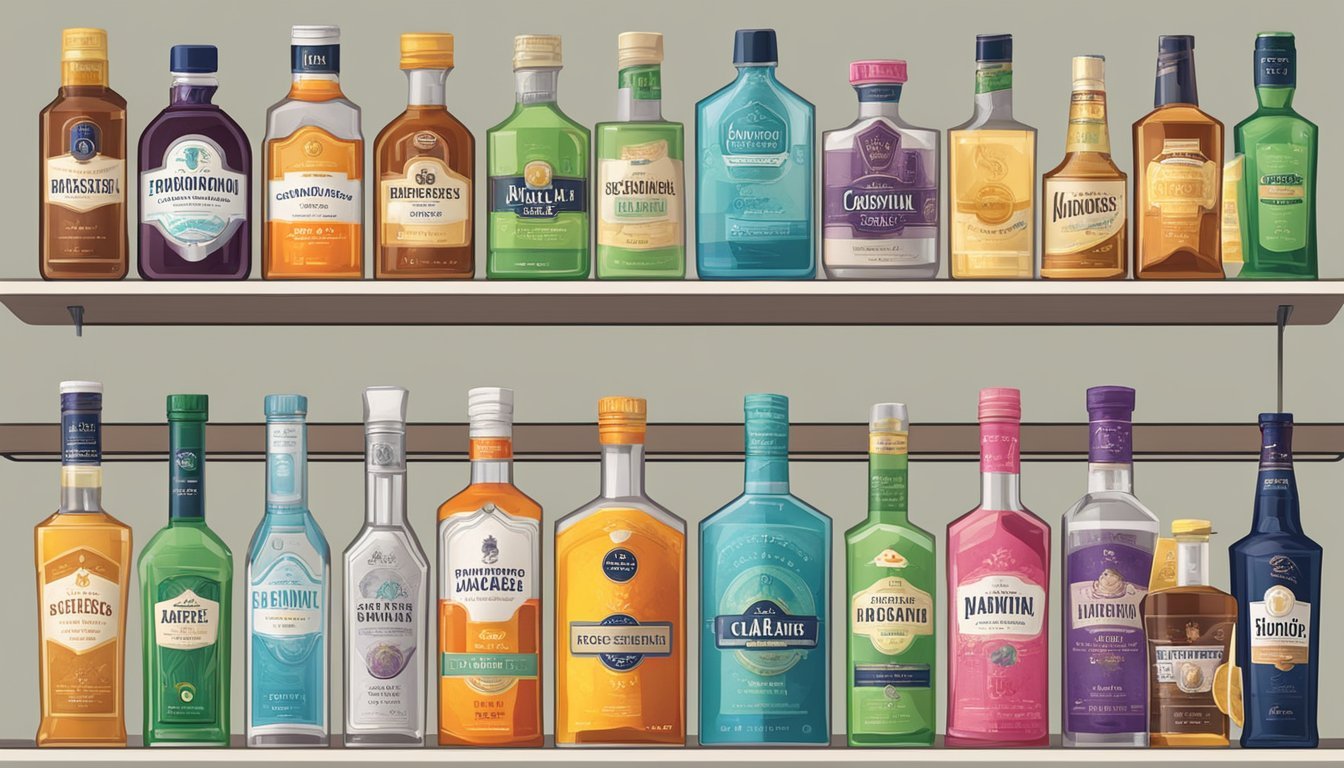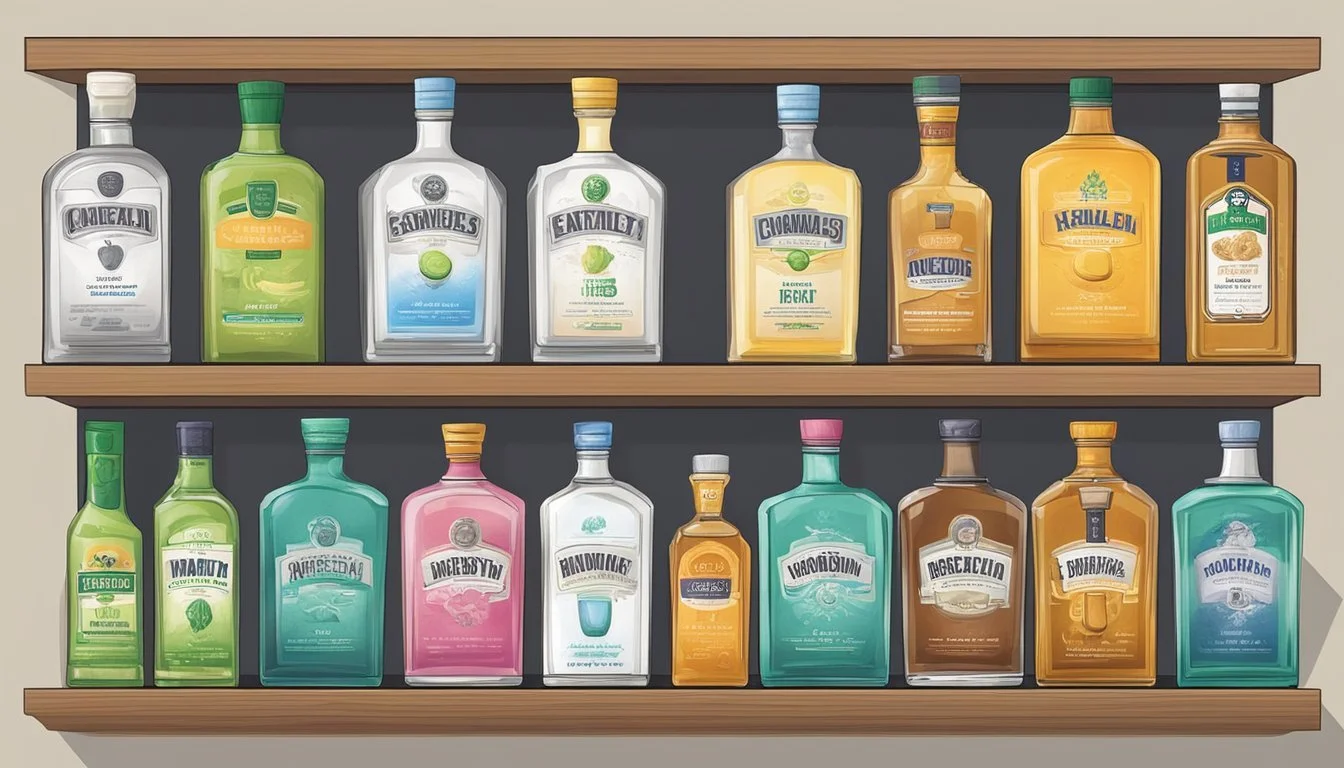Do Cocktail Mixers Go Bad?
Understanding Shelf Life and Storage
Cocktail mixers, like margarita mix and other pre-made concoctions, do have a shelf life and can indeed go bad. Most liquid mixers need to be refrigerated after opening and typically last between a week to a few months. Powdered mixers, on the other hand, generally have a longer shelf life due to their dry form and lack of perishable ingredients.
It's crucial to check the packaging for expiration dates and storage instructions to ensure the best quality and safety of your drinks. Over time, the flavor and potency of mixers can degrade, even if they don't pose a health risk. Keeping an eye on these factors can help you maintain consistently delicious cocktails.
Understanding the lifespan of your mixers can help you avoid disappointing drinks and unnecessary waste. Proper storage and timely use are key to enjoying great-tasting cocktails every time.
Understanding Cocktail Mixers
Cocktail mixers are essential ingredients that combine with alcohol or non-alcoholic bases to create a variety of drinks. They add flavor, complexity, and depth to cocktails, enhancing the overall experience.
These mixers can include juices, syrups, sodas, and tonics. For example, orange juice and lemon juice are staples for cocktails like Mimosas and Whiskey Sours.
Mixology often requires different types of mixers. Simple syrups, often made from sugar and water, are used to sweeten drinks. Herbal syrups and flavored syrups add unique tastes and aromas.
Shrub drinks, which mix vinegar with fruits and sugar, provide a sweet and tangy option. They work well with a variety of alcoholic beverages like rum, whiskey, and gin.
For non-alcoholic mixers, tomato-based options like Clamato juice or Bloody Mary mix are common. These contain preservatives to prolong shelf life, but freshness can still affect quality.
Carbonated mixers like tonic water and club soda are indispensable in many classic cocktails. They introduce a fizzy texture and balance the flavors.
Here is a table of common mixers and their typical uses:
Mixer Use Orange Juice Mimosas, Screwdrivers Lemon Juice Whiskey Sours, Lemon Drop Martinis Simple Syrups Sweetens various cocktails Clamato Juice Bloody Marys, Micheladas Tonic Water Gin and Tonics
Mixers can significantly enhance drink profiles when used correctly and fresh. They play a crucial role in balancing the cocktail’s taste and making the drinking experience enjoyable.
Shelf Life and Spoilage Factors
Cocktail mixers' shelf life and spoilage are influenced by their ingredients, alcohol content, preservatives, and storage conditions. Each factor plays a critical role in determining how long a mixer remains safe and flavorful.
Impact of Ingredients and Alcohol Content
Ingredients in cocktail mixers affect their shelf life significantly. Mixers made with fresh fruit juices like lime or lemon tend to spoil faster due to their perishable nature.
Alcohol content acts as a natural preservative. Mixers with higher alcohol content last longer, reducing the risk of spoilage. For example, mixers containing vodka or rum can keep longer compared to those with non-alcoholic bases. Flavor deteriorates when spoiled due to microbial growth in fresh, perishable ingredients.
Role of Preservatives in Mixers
Preservatives extend the shelf life of cocktail mixers. Common preservatives include sodium benzoate and potassium sorbate.
These chemicals inhibit microbial growth, preventing spoilage and extending the product's life span. Natural preservatives, such as citric acid, may also be used. The presence of preservatives often allows mixers to remain stable for months or even years before opening. Though they help maintain quality, it’s important to note that the effectiveness diminishes over time.
Light, Temperature, and Oxidation Effects
Storage conditions like light exposure, temperature, and oxidation significantly impact mixers’ longevity. Light can degrade ingredients, especially those containing citrus, making dark storage essential.
Fluctuations in temperature can hasten spoilage. Storing mixers at consistent room temperature or refrigerating once opened helps maintain freshness. Keep mixers away from heat sources.
Oxidation, resulting from exposure to air, leads to flavor changes and spoilage. Oxygen can break down delicate components in the mix. Using airtight containers and minimizing headspace in bottles reduce oxidation. Whether kept at room temperature or refrigerated, limiting oxygen exposure is crucial in extending the mixer’s shelf life.
Proper Storage Techniques
To ensure cocktail mixers remain fresh and flavorful, proper storage techniques are crucial. This section details how to store both opened and unopened mixers, as well as best practices for homemade versions.
Refrigerating Opened Mixers
Opened cocktail mixers, such as margarita mix, should be refrigerated to maintain their quality and extend their shelf life. This is particularly important for mixers containing perishable ingredients like fruit juice, which can spoil if left at room temperature.
Store opened mixers in an airtight container to prevent exposure to air, which can degrade flavors. Labeling the container with the date it was opened helps keep track of freshness. Most opened mixers will last for about 1 to 2 weeks in the fridge, though this can vary based on ingredients.
Storing Unopened Mixers
Unopened cocktail mixers should be kept in a cool, dark place. A pantry is ideal as it protects the mixers from light and temperature fluctuations that can affect their quality.
Avoid storing mixers near heat sources such as stoves or ovens. If the mixer comes in a glass bottle, ensure it is stored upright to prevent leaks and spills. Check the expiration date on unopened mixers regularly, and rotate stock to use older items first.
Best Practices for Homemade Mixers
Homemade mixers often lack preservatives, making proper storage even more essential. After preparing a homemade mixer, transfer it to an airtight container to preserve its freshness.
For mixers containing fresh ingredients like fruits or herbs, refrigerate immediately. If making a large batch, consider freezing portions for longer-term storage. Homemade mixers typically last 1 to 3 days in the refrigerator, but some, such as simple syrups, can last up to a month if properly stored. Always label containers with the preparation date to monitor freshness.
By following these storage techniques, cocktail mixers can be kept fresh and ready for use, ensuring the best tasting cocktails every time.
Identifying Expiration and Quality
Understanding the expiration and quality of cocktail mixers can save both taste and health. This section highlights how to decode labels, recognize spoilage, and identify quality degradation over time.
Decoding Expiration and Best-By Dates
Cocktail mixers usually come with either an expiration date or a best-by date. The expiration date indicates the last day the product is safe to consume. In contrast, the best-by date suggests when the product is at its peak quality.
Most non-alcoholic mixers, such as margarita mix or bloody mary mix, should be consumed by the best-by date to ensure freshness and flavor. It's important to store mixers properly, away from direct sunlight and extreme temperatures, to extend their shelf life.
Telltale Signs of a Bad Mixer
Detecting a bad cocktail mixer involves using your senses. If a mixer has an off smell, strange color, or unusual texture, it is likely spoiled. Another clear sign is the presence of sediment or cloudiness in a once-clear liquid.
Taste a small amount to check for any off flavors. If the mixer tastes sour or bitter, it’s best to discard it. Ensuring mixers are refrigerated after opening can help maintain their quality and prevent them from going bad quickly.
Quality Degradation Over Time
Over time, even unopened mixers can degrade in quality. Flavors may become muted or change altogether. For example, fruit-based mixers may lose their fruity taste, while herb-infused ones might lose their aromatic qualities.
Opened mixers usually degrade faster. They should be used within a few months of opening to ensure they still provide the intended taste. Always keep opened mixers sealed tightly and store them in the refrigerator to slow down the degradation process.
By keeping these points in mind, one can enjoy mixers at their best and avoid any potential health risks.
Special Considerations for Specific Mixers
Different types of cocktail mixers require various storage and handling techniques to maintain their quality and safety. Each mixer has unique characteristics that influence its shelf life and stability.
Citrus-Based Mixers and Acidity
Citrus-based mixers like lime juice and those containing citric acid maintain their freshness and flavor best when stored in the refrigerator. The high acidity in these mixers helps to preserve them, reducing the likelihood of spoilage.
However, they can still deteriorate over time, leading to a loss of vibrancy and a sour taste. Limes used for fresh lime juice should be stored in a cool, dry place until they are cut, at which point the juice should be refrigerated. Additionally, combinations like margarita mix often contain citrus components and should be treated similarly, keeping them cold and minimizing exposure to air to preserve their quality.
Sugary and Creamy Mixer Stability
Mixers high in sugar and creamy mixers, such as those containing agave syrup or crème liqueurs like Baileys, have their own storage challenges. Sugar acts as a preservative to some extent, but it can crystallize or ferment if not stored properly. Crème liqueurs, on the other hand, contain dairy or dairy-like ingredients, making them prone to curdling and spoilage.
Baileys and similar products should always be refrigerated after opening and consumed within six months. Keep sugary mixers sealed and stored at room temperature to prevent moisture from causing clumping or mold growth. For drinks requiring a gluten-free option, ensure that mixers labeled as such are stored in a clean environment to avoid cross-contamination.
Diluting Mixers with Water and Ice
Adding water or ice to mixers can affect their flavor and stability. Club soda and similar carbonated mixers should be kept sealed and stored in a cool place to maintain their fizz. Once opened, these mixers should be used quickly to avoid going flat.
Diluting mixers like soda or margarita mix with ice can also introduce contaminants if the ice is not clean. In the case of alcoholic margarita mix, freezing can prolong its shelf life, but care must be taken to prevent changes in texture and taste. Salt, often used in margarita mixes, can also affect the consistency when frozen and thawed.






